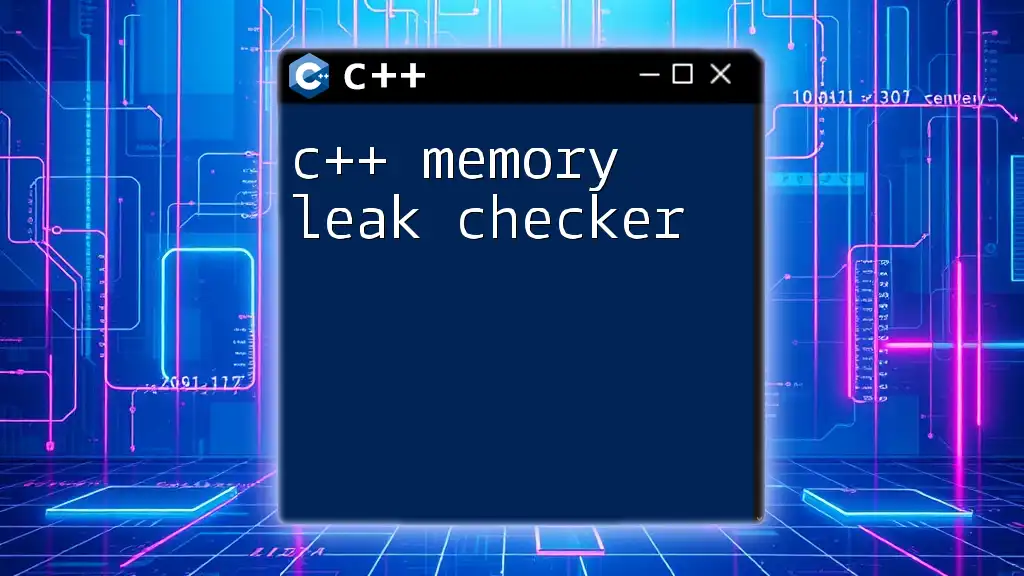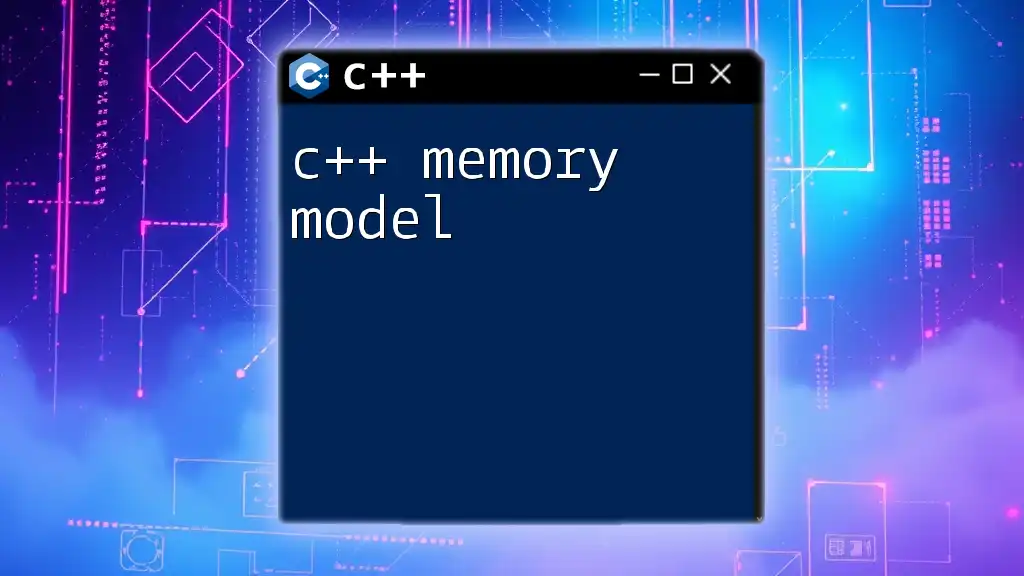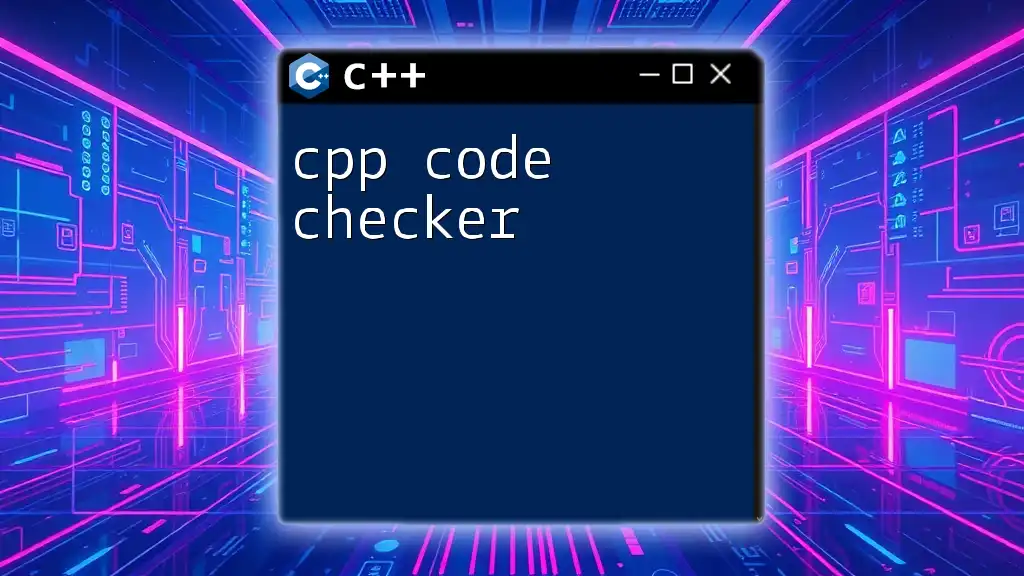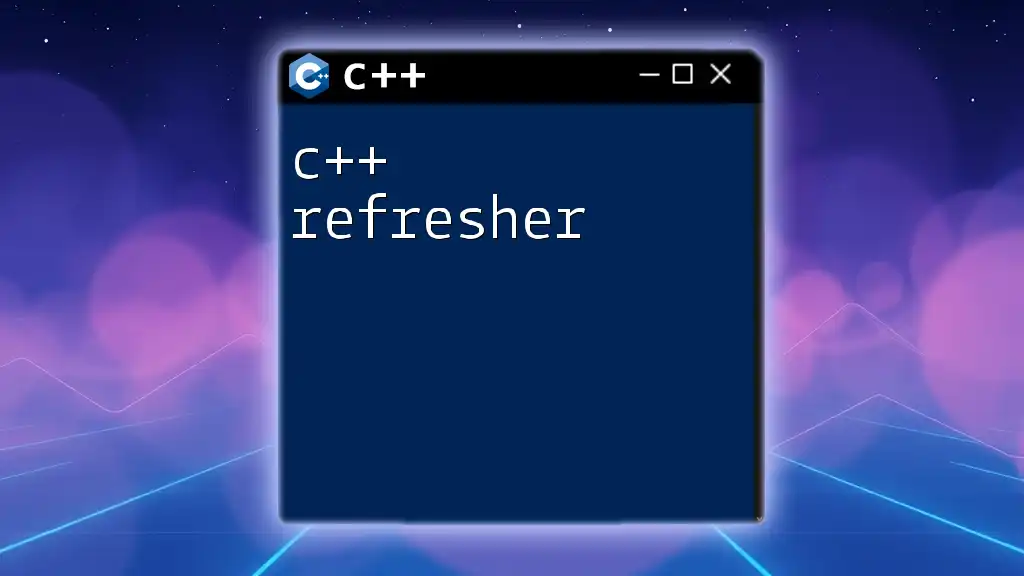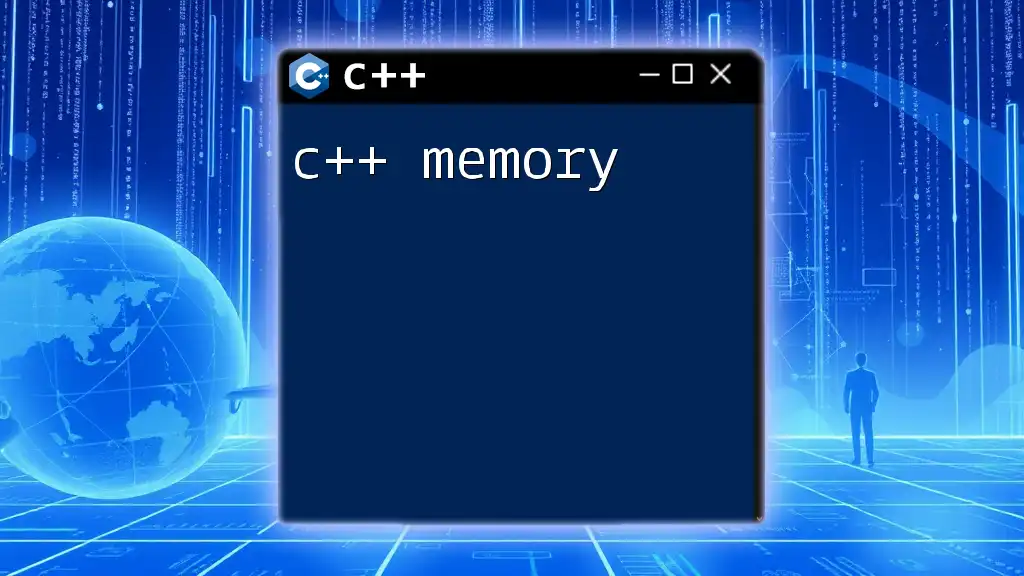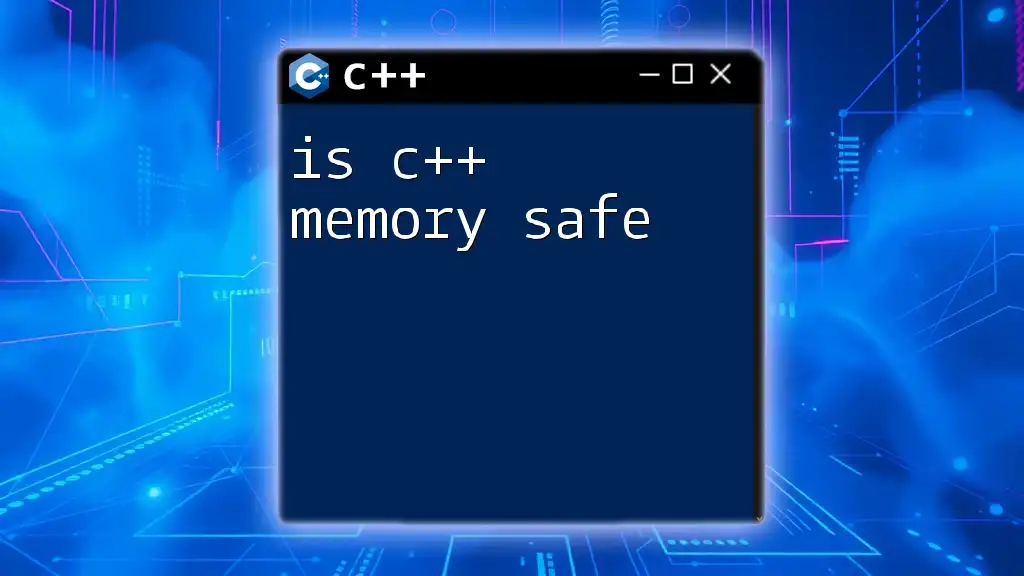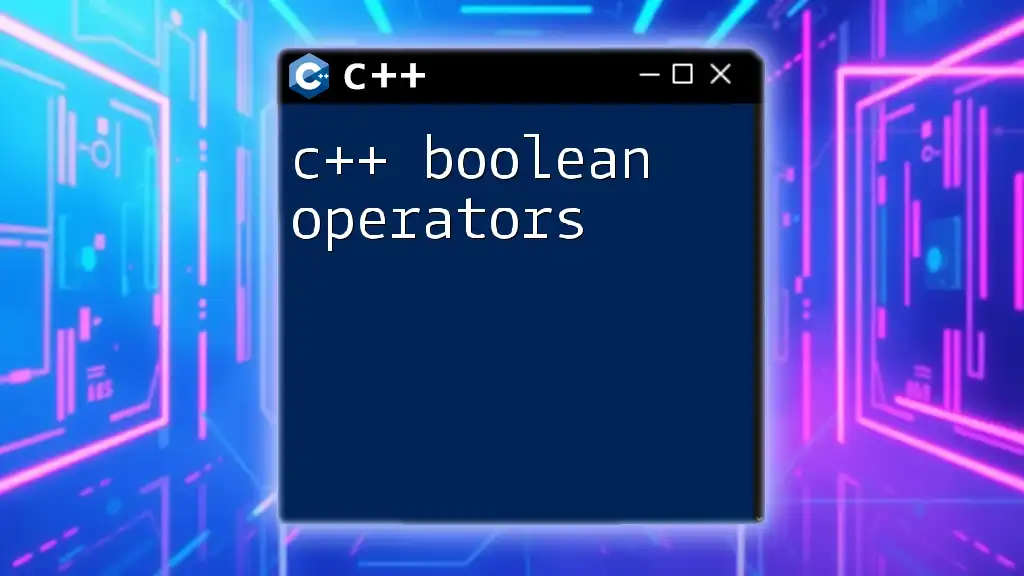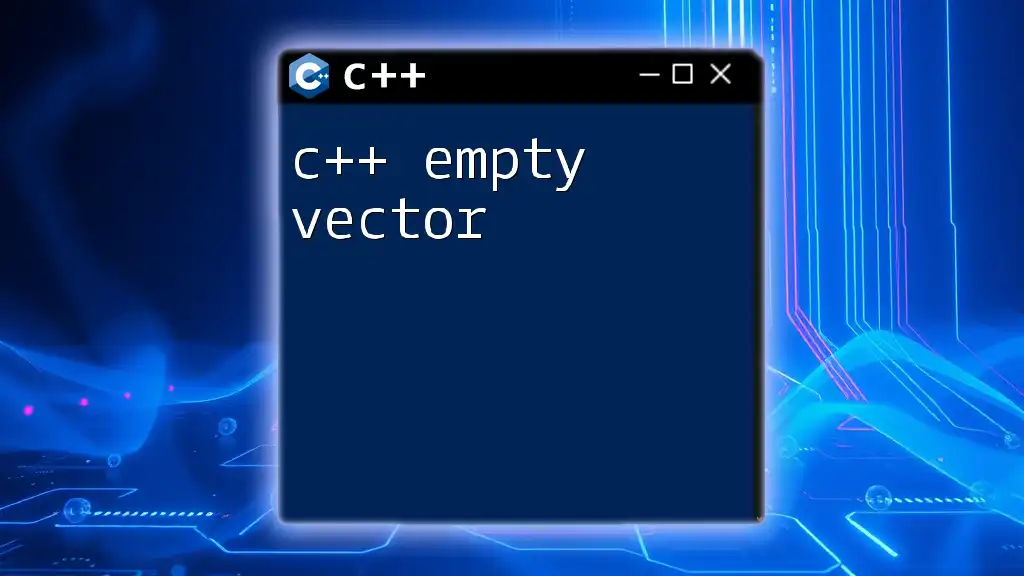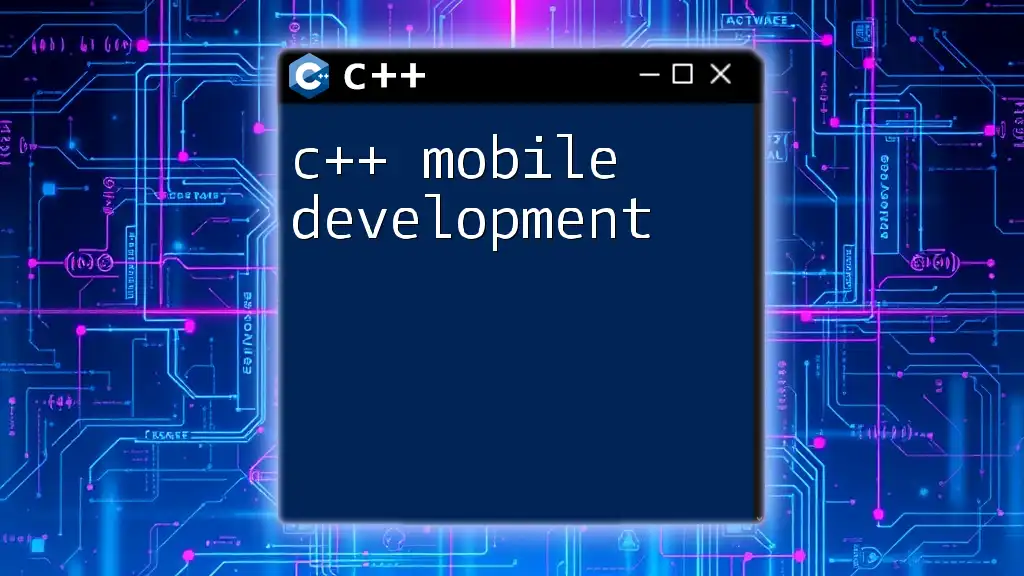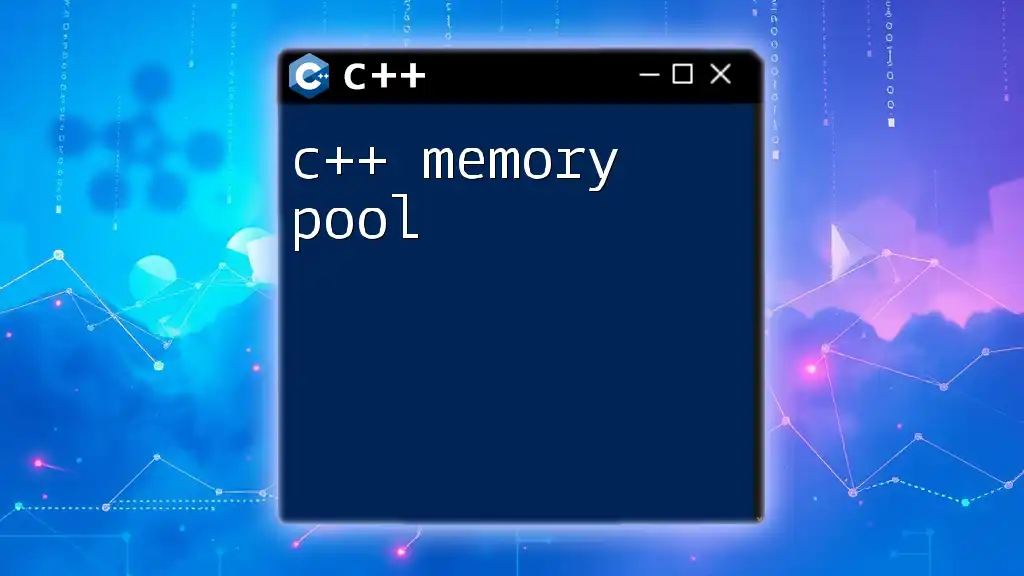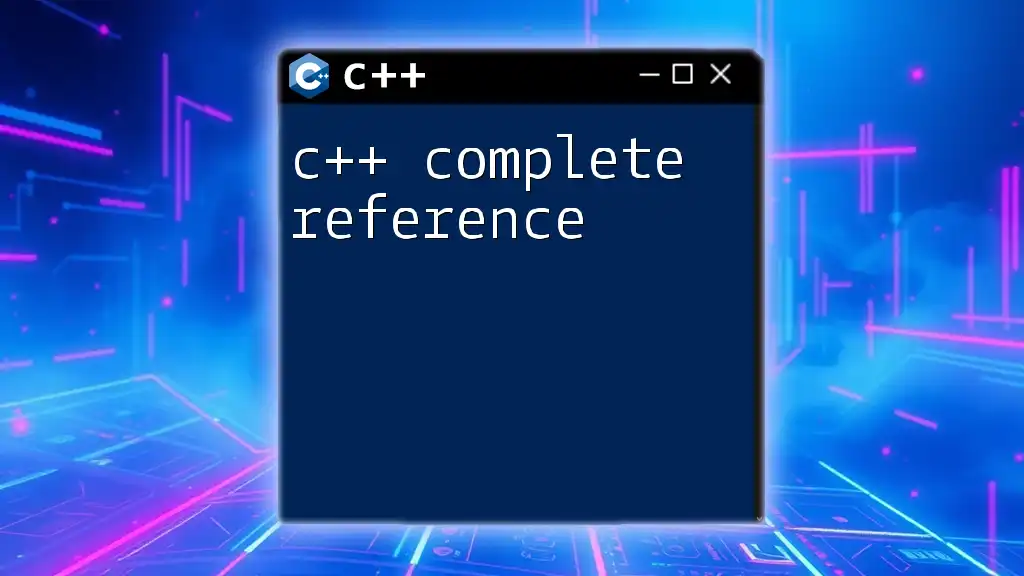A C++ memory leak checker helps identify and manage memory that has been allocated but not properly deallocated, preventing potential performance issues in applications.
Here’s a simple example using the Valgrind tool to check for memory leaks:
valgrind --leak-check=full ./your_cpp_program
Make sure to replace `./your_cpp_program` with the path to your compiled C++ executable.
Understanding Memory Leaks in C++
Memory leaks occur when a program allocates memory but fails to release it properly, leading to wasted memory resources. This can become especially problematic in long-running applications, where unaddressed leaks can accumulate, causing the application to consume more and more memory over time until it crashes or significantly slows down.
What Causes Memory Leaks?
Memory leaks are primarily caused by improper memory management practices, including:
- Improper Deallocation: Memory that has been allocated using `new` or `malloc` needs to be paired with a corresponding `delete` or `free` call. If the programmer forgets to deallocate memory, it results in a leak.
- Lost Pointers: When pointers to allocated memory are reassigned or go out of scope without first releasing the allocated memory, it results in a lost reference. Consequently, the memory cannot be freed.
The Impact of Memory Leaks
Memory leaks can severely impact the performance and reliability of an application:
- Increased Memory Consumption: As leaks persist without being detected, the available memory for the application depletes, leading to inefficient resource use.
- Decreased Performance: Applications may slow down as they hit memory limits, leading to sluggish behavior that can frustrate users.
- Application Crashes: In extreme cases, continuous memory leaks can lead to crashes as the operating system runs out of resources.
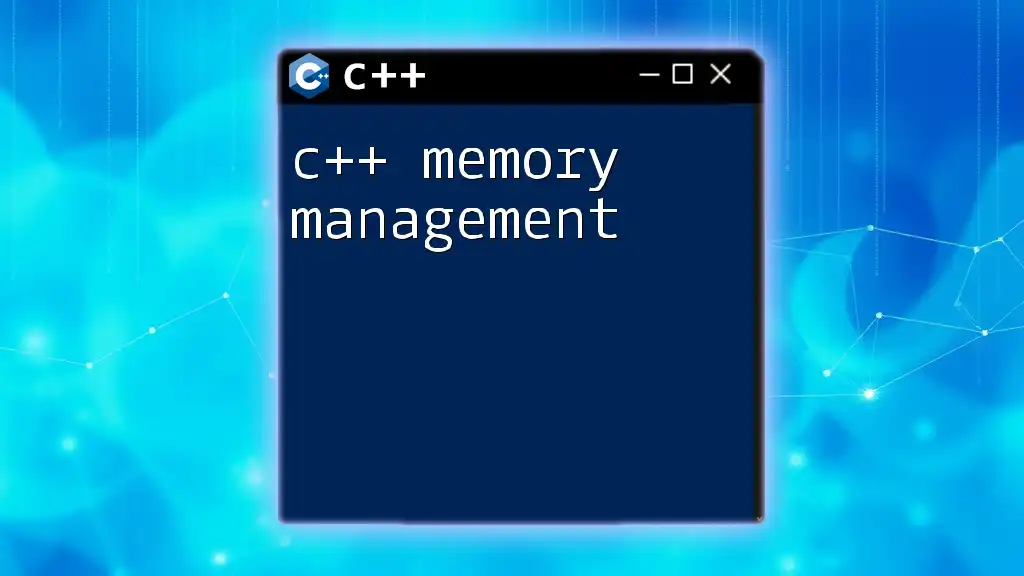
How to Check for Memory Leaks in C++
Detecting memory leaks becomes crucial in ensuring the stability of C++ programs. Here are some methods and tools used to identify memory leaks effectively.
Tools for Memory Leak Detection
Using specialized tools can simplify the memory leak detection process:
Valgrind
Valgrind is a powerful tool for detecting memory leaks and other memory-related errors.
-
Installation: Valgrind can typically be installed via package managers on various systems, such as `apt` for Ubuntu or `brew` for macOS.
-
Basic Usage: To use Valgrind on your C++ executable, run:
valgrind --leak-check=full ./your_executable -
Interpreting Valgrind Output: Valgrind will provide detailed reports regarding memory usage, helping you identify where leaks occur and the lines of code associated with them.
Manual Memory Leak Checking Techniques
While dedicated tools like Valgrind are invaluable, certain programming practices can prevent leaks from occurring in the first place.
- Using Smart Pointers: C++11 introduced smart pointers, which manage memory automatically. Employing `std::unique_ptr` and `std::shared_ptr` helps ensure that allocated memory is released appropriately without manual intervention.
Code Snippet: Smart Pointers Example
#include <memory>
void createObject() {
std::unique_ptr<MyClass> obj = std::make_unique<MyClass>();
// Memory is automatically cleaned up when obj goes out of scope
}
- RAII Principle: Embrace the Resource Acquisition Is Initialization (RAII) paradigm, which ties resource management to object lifetimes, ensuring that resources are cleaned up when objects are destructed.
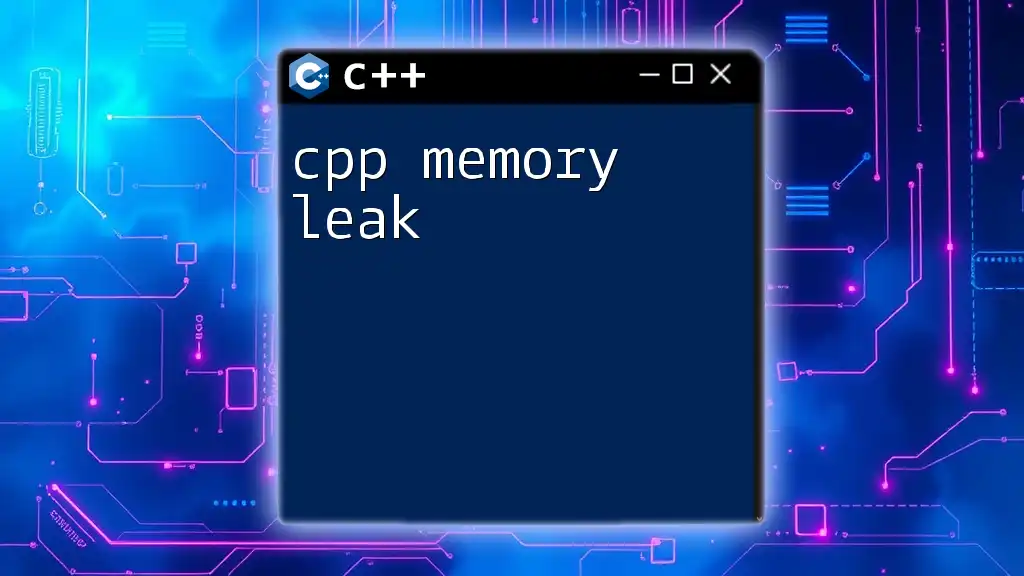
C++ Memory Leak Detection Best Practices
Implementing best practices in memory management will significantly reduce the occurrence of memory leaks.
Coding with Memory Management in Mind
Developers should adhere to consistent guidelines for dynamic memory allocation:
- Always pair `new` with `delete` and `malloc` with `free`.
- Determine and clearly define ownership of memory, ensuring there's a defined responsibility for deallocation.
Integrating Memory Leak Detection in Development Workflow
-
Continuous Integration (CI): Integrate memory leak detection tools like Valgrind into the CI/CD pipeline to catch leaks early in the development process.
-
Regular Code Reviews: Focus reviews on memory usage, encouraging team members to identify memory management flaws.
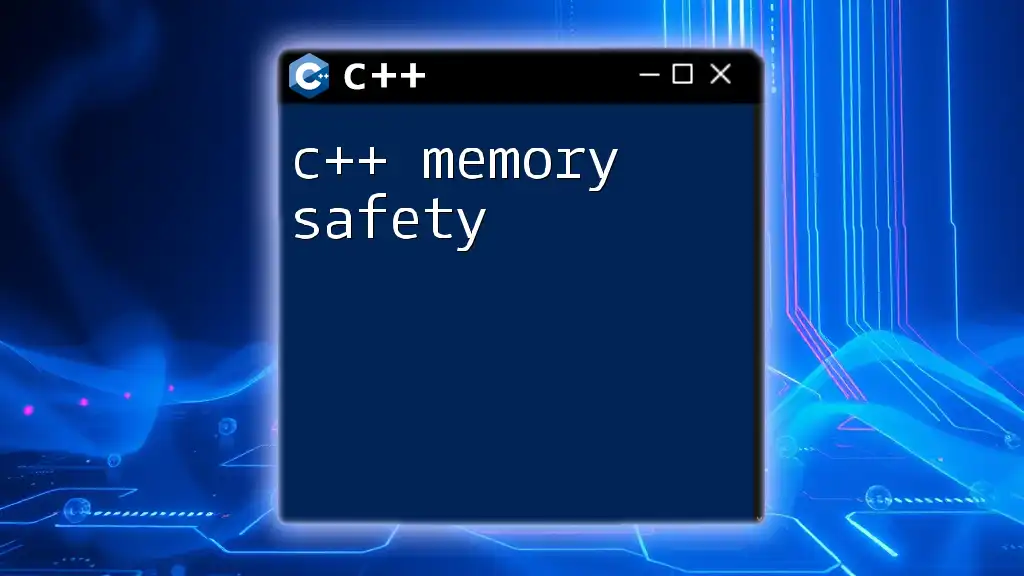
Detecting Memory Leaks in Your C++ Application
Common Patterns to Watch For
Certain coding patterns often indicate potential memory leaks:
- Forgotten Delete Statements: Developers might forget to free memory allocated with `new`.
- Circular References with Smart Pointers: When two `std::shared_ptr`s refer to each other, it can create a cycle that prevents deallocation.
Example: Common Memory Leak Scenario
void exampleFunction() {
MyClass* obj = new MyClass();
// Problem: Forgot delete statement causing a memory leak
}
Testing for Memory Leaks in Code
Unit tests can be designed to check for memory leaks systematically:
- Use testing frameworks to evaluate memory states. This involves assertions to verify that no memory leaks occur during tests.
Example: Testing Code for Memory Leaks
void test_memory_leak() {
ASSERT_NO_LEAK([] {
MyClass* obj = new MyClass();
// Process with obj
delete obj; // Correct management ensures no leak
});
}
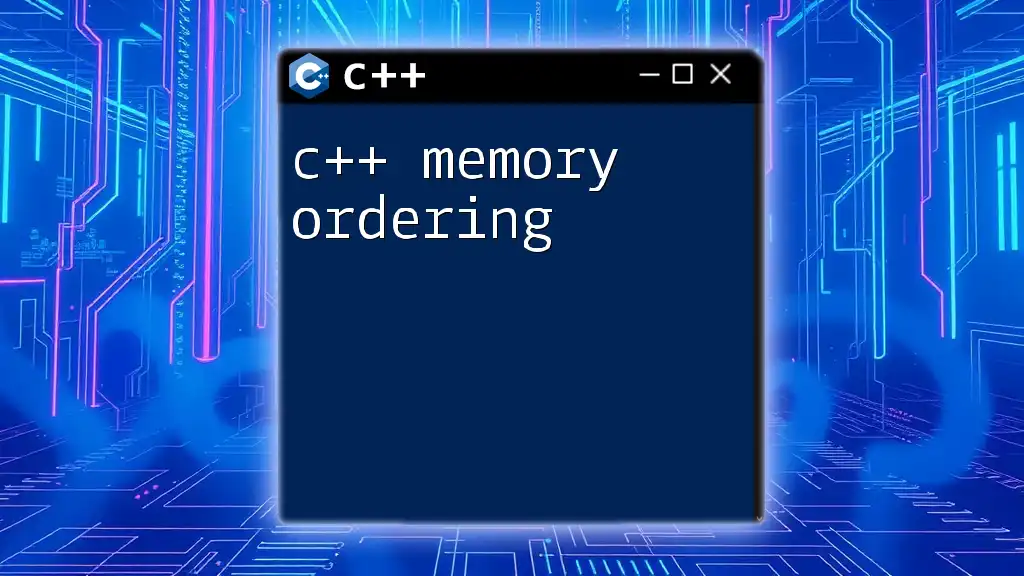
Advanced C++ Memory Leak Detection Techniques
Using Custom Memory Allocators
Custom memory allocators can provide tailored solutions for managing memory needs efficiently.
- Benefits: Custom allocators can optimize memory allocation, reduce fragmentation, and provide more detailed tracking of memory usage.
Code Snippet: Custom Allocator Example
class CustomAllocator {
// Implementation details would go here breaking down how memory is allocated and tracked.
};
Profiling and Performance Monitoring
Tracking memory usage over time is essential for identifying leaks:
- Utilize performance monitoring tools that help track memory consumption metrics during application run times, thus enabling early detection of anomalies.
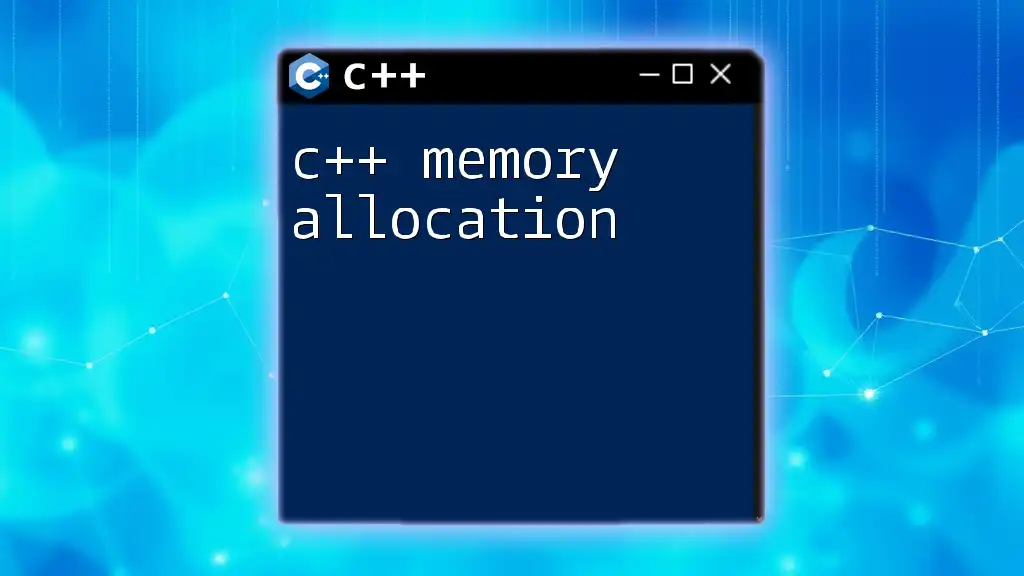
Conclusion
Effective memory leak detection is crucial in C++ programming. Integrating tools like Valgrind, adhering to best practices, and utilizing modern features like smart pointers can all contribute to creating robust software. By being proactive in checking for memory leaks, developers can ensure their applications perform efficiently and remain stable over time.

